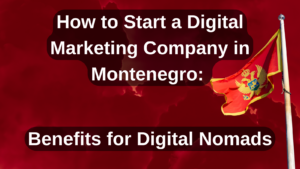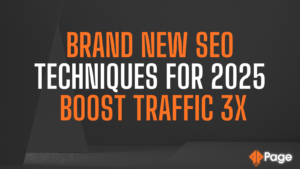As the digital marketing landscape continually evolves, the significance of entity-based SEO in enhancing online visibility and search engine rankings is becoming more pronounced. This intricate approach transcends the conventional boundaries of keyword optimization, offering a nuanced pathway to understanding and leveraging the semantic web. This guide aims to unravel the complexities of entity-based SEO, shedding light on its foundational principles, inherent benefits, and the strategic applications that can transform your digital presence.
Entity-based SEO marks a paradigm shift in search optimization strategies. It’s a sophisticated approach that aligns with the evolving capabilities of search engines, aiming to understand the intent and context behind user queries. This method is not just about improving visibility; it’s about fostering a deeper connection between content and audience, ensuring that every interaction is meaningful and relevant.
Understanding Entity-Based SEO
Entity-based SEO represents a significant advancement in the realm of digital marketing, focusing on the semantic relationships and meanings behind words or phrases, known as “entities”. These entities are distinct, well-defined concepts or things that encompass a wide array of categories, including people, places, organizations, dates, products, and ideas. The primary goal of this approach is to harness the power of these entities, utilizing their relationships and attributes to deliver more precise and pertinent search results.
The evolution of search engines, particularly Google, has been pivotal in the rise of entity-based SEO. These technological powerhouses have developed an acute ability to decipher the context and intent behind user searches, making entity recognition an integral part of their algorithms. This evolution signifies a move away from the rigid, keyword-centric methods of the past towards a more fluid and intuitive understanding of content and user needs.
By identifying and categorizing entities within content, search engines can more effectively bridge the gap between users and the information they seek. This process involves a complex interplay of algorithms and machine learning techniques that analyze content to determine its relevance and value based on the identified entities. The result is a more intelligent, user-centric approach to search that considers not just the words used in a query, but the underlying meaning and intent.
The implications of entity-based SEO are profound. It allows for a more dynamic and responsive search experience, where users are met with content that truly matches their search intent. For businesses and content creators, this means an opportunity to craft content that resonates on a deeper level, engaging users with precision and relevance. As search engines continue to refine their understanding of entities and their relationships, the potential for entity-based SEO to shape the future of digital marketing grows ever more significant.
The Benefits of Entity-Based SEO
Entity-based SEO represents a transformative approach in the digital marketing domain, offering a multitude of benefits that cater to the evolving needs of users and the sophisticated algorithms of search engines. This section expands on the advantages of adopting entity-based SEO, emphasizing its role in enhancing search accuracy, providing language and syntax flexibility, enriching content value, and offering a future-proof strategy for businesses and content creators alike.
Enhanced Search Accuracy and User Experience
The precision of entity-based SEO in understanding and interpreting content significantly elevates the accuracy of search results. By focusing on entities and their semantic relationships, search engines can discern the context and nuances of content, delivering results that are not only relevant but also aligned with the user’s intent. This accuracy is crucial in an era where users expect immediate and pertinent answers to their queries. It reduces the noise and clutter of irrelevant results, directly leading to a more satisfying and efficient search experience. As users find what they need quickly and effortlessly, their trust and reliance on search engines continue to grow, creating a positive feedback loop that benefits all parties involved.
Language and Syntax Flexibility Across Queries
One of the most compelling advantages of entity-based SEO is its inherent flexibility in language and syntax. Traditional keyword-based approaches can be rigid, often missing the mark when it comes to synonyms, context, or language variations. Entities transcend these limitations, recognized and understood by search engines regardless of how they are expressed. This universality means that content can rank for a diverse array of queries, capturing a wider audience and accommodating the global nature of the internet. Whether users search using different terminologies, synonyms, or even various languages, entity-based SEO ensures that the content remains discoverable and relevant.
Enriching Content Value Through Interconnectedness
Focusing on entities encourages content creators to delve deeper into topics, creating richer, more informative, and interconnected content. This approach fosters a more holistic and comprehensive exploration of subjects, highlighting not just the entities themselves but also their relationships and attributes. As a result, content becomes more valuable to users, providing them with a broader understanding and more complete answers. This enriched content is more likely to engage users, encouraging them to spend more time exploring, sharing, and interacting with the material. For businesses and creators, this means improved SEO performance, higher engagement rates, and a stronger connection with their audience.
Future-Proofing Strategy with Evolving Search Technology
As search engines evolve, they continue to move towards a more nuanced understanding of user intent and content relevance. Entity-based SEO aligns perfectly with this direction, offering a strategy that is adaptable and resilient to changes in technology and user behavior. By focusing on the meaning and relationships of entities, businesses can ensure that their content remains relevant and effective, regardless of how search algorithms evolve. This future-proof approach is essential in a landscape where change is the only constant. It provides businesses with a competitive edge, ensuring that they can adapt, evolve, and thrive in the face of technological advancements.
Strategic Implementation of Entity-Based SEO
Harnessing the full potential of entity-based SEO requires a deliberate and sophisticated strategy, encompassing a deep understanding of your business’s unique landscape and the digital ecosystem. This section expands on the critical steps necessary for a comprehensive approach to entity-based SEO, emphasizing the importance of entity identification, contextual mapping, content optimization, and continuous adaptation.
Entity Identification and Analysis – Laying the Foundation
The first step in implementing an effective entity-based SEO strategy is to identify and analyze the key entities that are integral to your business, industry, and content. This process involves a deep dive into the main topics, concepts, and attributes that resonate with your audience and are likely to be used in search queries. Understanding these entities is not merely about listing out terms; it’s about grasping their significance, variations, and the potential user intent behind each one.
To achieve this, businesses must employ a combination of analytical tools, industry insights, and competitor analysis to map out a comprehensive entity landscape. This might involve keyword research tools, customer feedback, market trends, and semantic analysis to understand how these entities are discussed and sought after in the digital space. The goal is to create a detailed entity blueprint that guides all subsequent SEO efforts, ensuring that every piece of content is aligned with the identified entities and effectively targets the intended audience.
Contextual and Relational Mapping – Understanding the Web of Connections
Once the key entities are identified, the next step is to map out their relationships and understand the context in which they are used. This involves a meticulous analysis of how different entities relate to each other and their significance within the broader context of your content and industry. Contextual and relational mapping is about understanding the web of connections that bind entities together, providing a richer and more nuanced view of how they interact and influence each other.
This process requires a keen understanding of the user’s journey, the various touchpoints, and how different entities play a role at each stage. It’s about creating a multi-dimensional map that highlights not just the entities but also the pathways between them, revealing opportunities for content interlinking, topic clusters, and thematic consistency. By understanding these relationships, businesses can create content that is not only rich in entities but also interconnected in a way that enhances discoverability and relevance.
Content Optimization – Crafting Entity-Rich, Connected Content
With a clear understanding of the key entities and their relationships, the focus shifts to content optimization. This step involves integrating the identified entities into your content, ensuring that they are accurately represented, contextually placed, and effectively linked. Content optimization in the realm of entity-based SEO goes beyond mere keyword insertion; it’s about weaving entities into the narrative in a way that feels natural, informative, and engaging.
To aid in this process, structured data and schema markup are invaluable tools. They provide a standardized format for labeling and organizing entities within your content, making it easier for search engines to recognize and understand the relationships and hierarchies present. This structured approach not only enhances the visibility of your content in search results but also contributes to the creation of rich snippets and knowledge graphs, further amplifying your online presence.
Continuous Monitoring and Adaptation – Staying Ahead in a Dynamic Landscape
Entity-based SEO is not a static strategy; it requires ongoing attention and adaptation. The digital landscape is continually evolving, with search algorithms being updated, user behavior changing, and new competitors entering the field. To maintain and improve your SEO performance, it’s crucial to regularly monitor how your content is performing in search results, stay informed about the latest changes in search engine algorithms, and adapt your strategy accordingly.
This continuous monitoring involves tracking key performance indicators, conducting regular SEO audits, and staying abreast of industry trends and insights. It’s about being proactive and responsive, ready to tweak and refine your approach as needed. By staying committed to this iterative process, businesses can ensure that their entity-based SEO strategy remains effective, relevant, and aligned with the ever-changing digital marketing landscape.
Leveraging Page Indexer and Page SERP in Entity-Based SEO
In modern SEO, tools like Page Indexer and Page SERP from the Page Ads platform can significantly enhance your strategy. Page Indexer ensures that your web pages and content are promptly indexed by search engines, making them more discoverable and likely to rank in search results. This tool is particularly valuable in accelerating the recognition of new or updated content, ensuring that your latest information is available to users when they search.
Page SERP, on the other hand, is an advanced SEO analytics tool that provides detailed insights into how your website performs in search engines. It allows you to track rankings for specific entities and keywords, understand your click-through rates, and much more. With Page SERP, you can fine-tune your entity-based SEO strategy, making informed decisions based on comprehensive data and analytics.
Embracing Entity-Based SEO for Future Success
Entity-based SEO represents a significant shift in how businesses approach search engine optimization. By focusing on the meaning and relationships of entities, rather than just keywords, businesses can improve their search accuracy, create more valuable content, and stay ahead in the ever-evolving world of digital marketing. As search technology continues to advance, embracing entity-based SEO is not just an option; it’s a necessity for those looking to thrive in the competitive online landscape. With tools like Page Indexer and Page SERP, businesses have what they need to effectively implement and benefit from this powerful SEO strategy.





